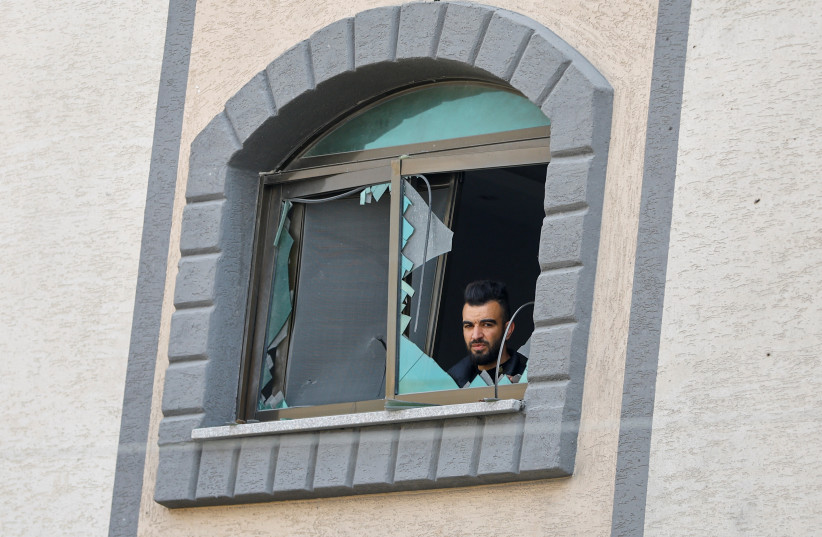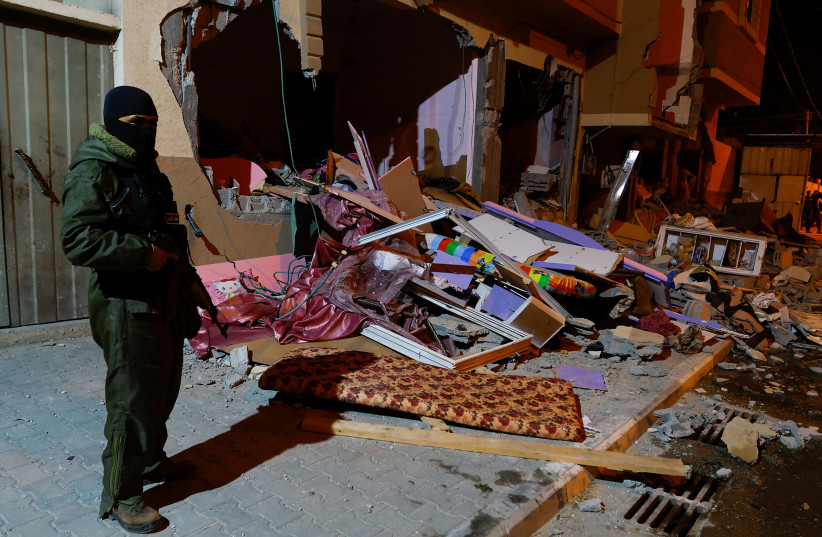Israel’s wider security cabinet was reportedly not consulted by Netanyahu and Gallant on the decision to strike Gaza overnight.

It wasn’t just the Palestinian Islamic Jihad and Hamas who were surprised by the Israeli airstrikes targeting three of the PIJ’s top leaders and weapons in the Gaza Strip early on Tuesday morning, but rather, many on the Israeli side were too, possibly because the final decision to strike was taken only hours before.
However, what is certain is that Gaza was taken by surprise – as seen simply from the fact that as of 9:30 a.m., several hours after the attacks, there still had been no counterstrikes from Gaza.
And it does seem clear that Prime Minister Benjamin Netanyahu and the IDF had plans to carry out a second round of airstrikes following the flare-up of rockets and airstrikes on May 2-3, but the exact timing of the strikes had been very much up in the air.
The IDF is in the middle right now of a special international law conference of top legal officials from dozens of countries, and is doubtful that they would have purposely put the officials in potential danger, had they known that the Israeli Air Force would be carrying out a major series of targeted killings of top Islamic Jihad leaders at the same time.
The Jerusalem Post understands that the conference is at least technically continuing on Tuesday without changes as of Tuesday morning.

In addition, there were various pre-planned IDF briefings scheduled for Tuesday, with slight changes to the schedule being made as late as Monday night, with no sign that they would be canceled until early Tuesday.
It is possible that the IDF waited to carry out the strike an extra day until other top US officials, Brett McGurk and Amos Hochstein, who were visiting Israel on Monday, left the area.
Attack launched without security cabinet consultation
Further, it has been reported that the wider security cabinet was not consulted on the decision to attack.
Although this is not the first time that Netanyahu or other prime ministers took action with the IDF in consultation just with his defense minister and security chiefs, unless the public continues to perceive the strike as a significant success, the prime minister could be in for some criticism on this issue going forward.
Then again, if the operation goes off with gains for Israel, he gets to take all of the credit.
The precedent for not informing the wide security cabinet is the idea of the element of surprise and that until Gaza fires rockets, the targeted killings, while risky, are not necessarily a certain cause for war. Netanyahu would need to consult the security cabinet to undertake an operation that would for sure lead to a broader war.
After all of the surprise in both Israel and Gaza, the IDF itself appears to have been very ready, with all missile defense and necessary forces pre-moved to strategic positions and various border crossings ready to be closed at a moment’s notice.
Likewise, very organized instructions were sent out to citizens in the South and the rest of the country conveying some of the IDF’s expectations of where and how it expects Gaza to react.
Regarding the exact timing, it seems that Netanyahu wanted to wait until after Ramadan and until the IDF located all of the key Islamic Jihad leaders, who might have been underground for some period of days after the ceasefire last week.
But once again, at the end of the day, whether the surprise of not only Gaza, but also many on the Israeli side, will be seen as a brilliant (the initial public framing) or an out-of-control move, will, like many things, depend on the final outcome.
Content retrieved from: https://www.jpost.com/israel-news/article-742492.